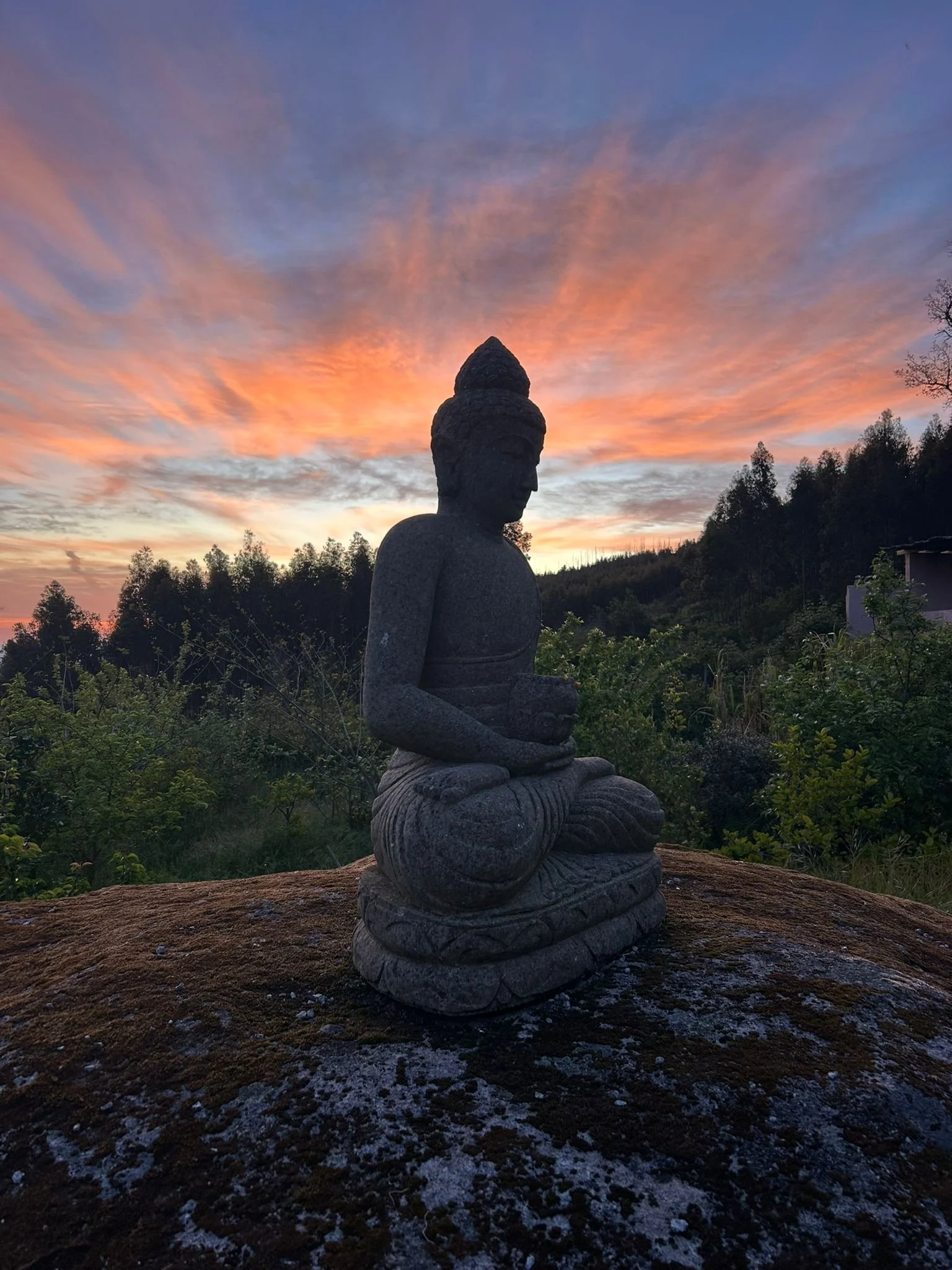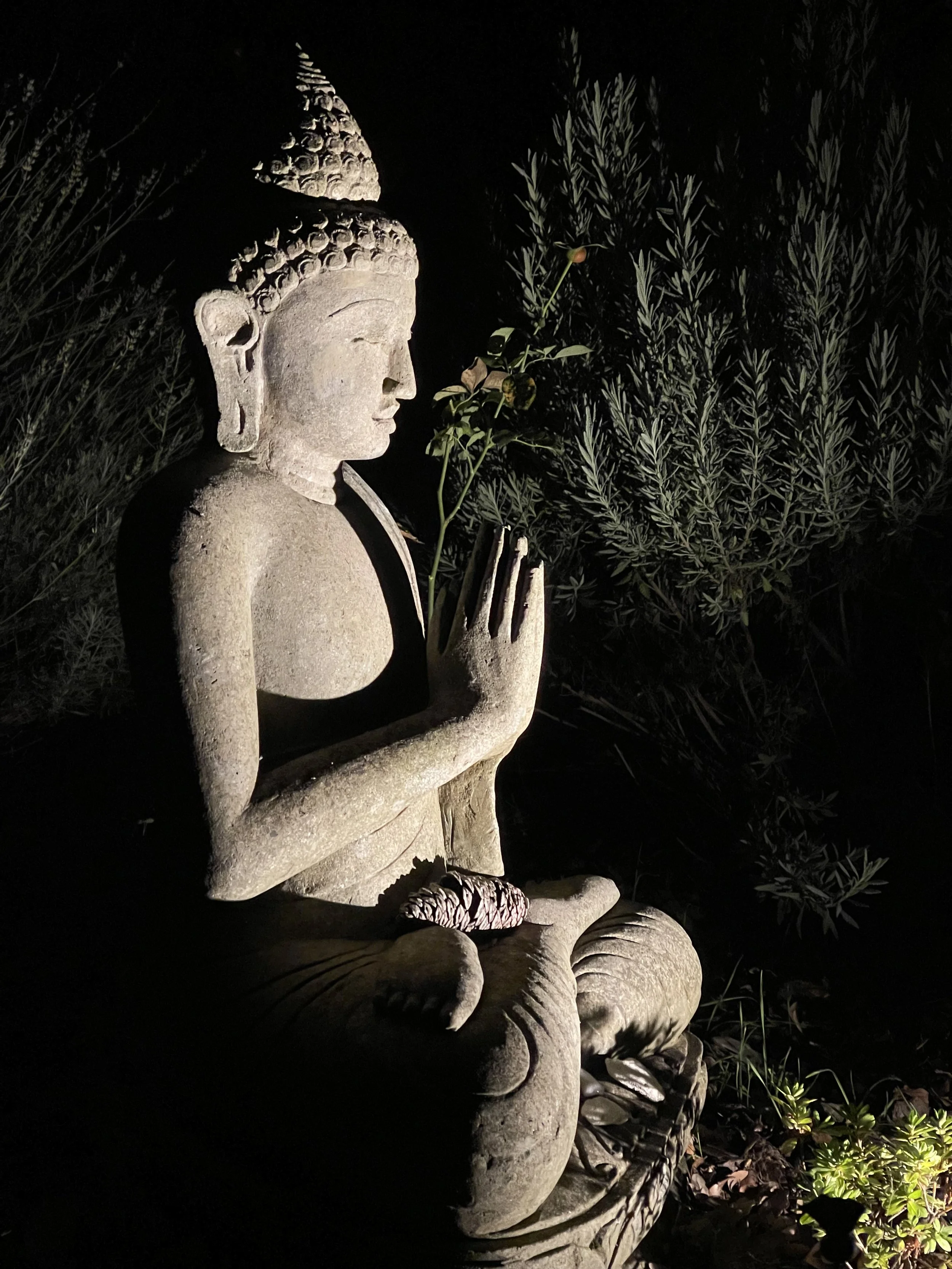FAQs - BUDDHIST MEDITATION
1. What is Buddhist meditation?
Buddhism is one of the eight soteriological or liberation seeking traditions of ancient India, and Buddhist meditation is the practice of awakening the mind’s inherent wisdom, the catalyst for the eradication of suffering (dukkha) in our lives. It is the art of reclaiming and abiding within the mind’s highest nature, a state innately free from dukkha.
2. Are meditation and mindfulness the same thing? What is the difference between mindfulness and meditation?
Moments of mindfulness are the foundation upon which a meditative state is built. Although, certain styles of meditation may be referred to as “mindfulness meditation”, all forms of meditation require mindfulness as the building blocks for further mental development.
Mindfulness is the causative mental factor that leads to a meditative state.
3. What does mindfulness/meditation do to the brain?
Simply put, meditation changes the brain. Owing to the plasticity of the brain our practice remaps the cortical topography of consciousness, literally unplugging and pruning away inefficient neural connections that leads to our suffering, replacing them with new, more efficient neural networks built upon wisdom and love.
4. Can mindfulness/meditation change your life? How?
What we can come to see through practice is that “our lives” or “my life”, are in essence the expression of how we each have been conditioned to experience the world. How the mind has been conditioned without judgment, by our animal brains, our parents, our friends, our culture, our society and our sense of self. In other words, we see the world not as it is, but as we are, as we have been conditioned. This is what the Buddha meant by not seeing clearly (avijjā), the precursor to suffering (dukkha).
By changing the brain through meditation we move beyond the limitations of the mind’s conditioning, altering the way in which the brain perceives and identifies with the sensory world of “our lives”. As a result we create opportunity for spontaneous evolution (akāliko) through insight (vipassanā).
Meditation will definitely benefit and in turn change one’s life. Both in ways we might imagine and in a innumerable, unimaginable ways. In the revered Thai forest lineage of Ajahn Buddhadasa it is put simply: “practice results in a new life.”
5. What are the benefits of meditation?
The benefits of meditation are boundless. Our practice benefits the mind from a soteriological (liberation from suffering) perspective by decreasing anxiety, fear and depression. It disengages the three primary defilements (kilesa) of mind (greed, anger, delusion) along with their myriad derivatives, and it has been shown to successfully work with cases of PTSD, addiction and schizophrenia.
It increases such things as empathy, self-compassion and interconnectedness, and enhances emotional maturity, self-esteem and altruistic tendencies.
From the control centre of the mind the benefits of our efforts radiate throughout the body, benefitting all aspects of our physical health. Meditation improves our sleep and digestion, strengthens the nervous and immune system, slows the aging process, and prevents and in some cases eliminates disease and cancer.
Although meditation is a path walked for the most part by oneself, our meditation practice also brings great benefit to the world. Through the simple act of being empathically present with ourselves, we foster our innate ability to be so with another, and eventually with any and all other living creatures, finding refuge within the interconnectedness of life. Cultivating our own inner peace through practice, we decrease what revered Burmese master Mahāsi Sayadaw called the roots of all evil and suffering, the kilesas of lobha (greed), dosa (hatred) and moha (delusion). In so doing, may our actions and energy inspire others to cultivate their own innate inner peace.
6. Is Buddhism considered a religion? Is there a God?
Buddhism can be considered a religion. It can also be considered a science.
Because religion tends to be met with much aversion in many first-world contemporary cultures, it is important to first understand what religion actually means.
The word religion comes from the Latin word “religare”, which means to unite or bind humankind to the highest or most supreme thing. Nowhere does this state that religion has anything to do with a God. But it can.
If, for example, from a theistic belief we posit that the highest potential, the most supreme expression of life is that of a personal God, and one practices to unite oneself with that, then that is a (theistic) religion.
But there are two types of religions, theistic and atheistic. Buddhism is the later.
In Buddhism our practice is also to bind ourselves to the/our highest potential, the supreme, awakened expression of the human mind. So from that respect it is a religion. But there is no God, or at least no personal God in Buddhism. If we must say there is a God in Buddhism, it is a non-personal God known as idappaccayatā, the natural law of conditionality or cause and effect.
Therefore if one wishes, Buddhism could be called a scientific religion.
7. What does Buddhism say about death?
This question will be answered in different ways depending on what Buddhist lineage and with what teachers within that lineage we are studying.
However, from a conservative and generalized Buddhist perspective death is simply the process by which the inherently unstable natural conditions (elements/dhatus etc.) that gave rise to the manifest body, are returned to the ground from which they came. There is from this perspective no permanent immortal soul/spirit/self that transmigrates through the annals of time, oscillating between heaven and hell and/or good rebirths and bad rebirths based on a karmic imprint belonging to a “self”.
8. Are Buddhists vegetarian?
It is often assumed that to be Buddhist means to be vegetarian. Yet one needn’t be vegetarian to practice Buddhist meditation. One needn’t even be “Buddhist” to practice Buddhist meditation.
In the Asian monasteries where Whit engages in retreat, all the food that feeds the sangha (community) of nuns, monks and lay practitioners is donated through the practice of dāna (generosity). At times those donations come from rural farmers in the form of animal meat. Owing to the ancient relationship between the giver and the receiver in the Buddhist practice of dāna, it is against tradition to refuse what is being given to you through a generous act. Accordingly, the monks and nuns will eat meat if that is what is provided to them.
There are many benefits to our practice as a result of following a plant-based diet. But, if we really like our meat this doesn’t and shouldn’t stop us from benefitting from the Buddha’s teachings. The most important thing at first for the development of our practice is that we avoid intentionally harming or inflicting pain on another being. Nonetheless, through the development of the mind’s altruistic tendencies in one’s practice, many people, ourselves included, are naturally guided towards a plant based lifestyle.
But this is for each practitioner to decide for themselves.
9. With what meditation should I begin?
This is subjective depending with what each individual is working with from a psychological perspective. Generally speaking however, a samatha (tranquility/serenity) style meditation practice is the most accessible place to begin.
10. Is Buddhism true?
This is for you to find out. Buddhism doesn’t ask for, and in fact denounces, blind faith. The Buddha invited his followers to come and see for themselves what is true (ehipassiko). To truly test the philosophies and teachings through one’s own effort. For only then will we know for ourselves if Buddhism is true or not.






